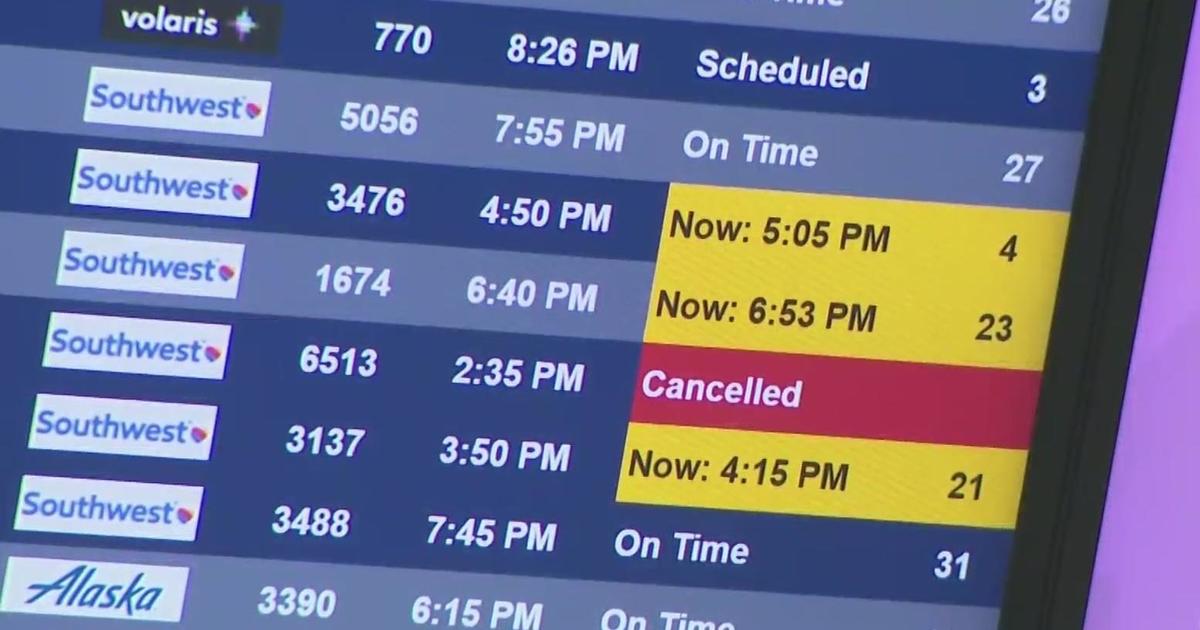Using Cyber and Space Warfare, Russia Aggression May Soon Extend Far Beyond Ukraine
By Ryan Yamamoto & Molly McCrea
Russia's act of war may extend far beyond the physical borders of Ukraine. U.S. and Bay Area experts warn the conflict may deliberately spill online and into space, to exploit a growing security threat at our fingertips.
On Thursday when the U.S. imposed new sanctions against Russia, President Joe Biden included a warning.
"If Russia pursues cyberattacks against our companies, our critical infrastructure we are prepared to respond," said Mr. Biden.
The conflict is no longer just confined to the physical battlefield.
"The difference now is you don't need an F-14 fighter plane. You don't need a B-2 bomber. You don't need boots on the ground. You can simply sit at a computer, and unleash a virus," former CIA Director and Secretary of Defense Leon Panetta told KPIX 5 last September.
Panetta heads up the Panetta Institute for Public Policy at Cal State Monterey Bay. He said the U.S. has to have a national strategy that applies across the country and builds a system that defends all of the country.
"We need to develop better cyber sources and cyber technology," said Panetta. "We've got to be on the cutting edge of that technology. It's moving rapidly. Our adversaries are developing this stuff. We have got to be on the cutting edge and that means investment. And it means being able to get cyber technicians who know what they're doing and develop that resource."
For example, Panetta said a cyberattack on the nation's Global Positioning System (GPS) network of satellites would be devastating.
"If GPS goes down, we are going to be in a world of trouble trying to figure out where the hell any enemy may be located," said Panetta.
The U.S. GPS system is comprised of 32 satellites that orbit the earth. It's more than a navigation system. On each satellite, there are multiple atomic clocks that keep highly precise time. These clocks keep vital systems back on earth synchronized and working - everything from the power grid, the banking system, ATMs, credit cards, and computer networks
"It's a timing system on which our entire economy depends." said Vice President of the Center for the National Interest and former CIA Director of Russia Analysis George Beebe.
Beebe said he does not believe Russia is going to sit passively by if the United States attempts to strangle and affect the Russian economy. He pointed to an event that occurred just a few months ago, in the midst of Russia's military buildup against Ukraine. Russia tested an anti-satellite missile and destroyed one of its own satellites, sending 1,500 pieces of debris into low orbit and threatening the International Space Station. The timing was far from a coincidence.
"That was a message to us they were saying to us don't push us too far because we can retaliate," noted Beebe. "We know where your vulnerabilities are. It's a very dangerous situation."
"We've really created this huge vulnerability for ourselves, a huge ability to be blackmailed," said GPS expert Dana Goward. He runs the nonprofit Resilient Navigation and Timing Foundation which advocates for a stronger GPS system.
Goward has been concerned for years that the U.S. does not have a terrestrial backup system for GPS. Russia and China do. There are reports suggesting Russian troops invading Ukraine have eschewed their GPS system and are relying on their land-based system instead.
Goward said Russia won't begin by blowing our satellites out of the sky. They may begin by spoofing or jamming GPS signals and then increasing interference. Reports show how Russian technologists are experts in this strategy. The good news about this strategy is that the effects are reversible.
"So, unlike destroying a satellite they can undo it if they get what they want," explained Goward.
Russia also has deployed several satellites that have nuclear generators on board. These too may be able to emit power to use in an attempt to disable other satellites.
Experts are warning US citizens and companies that cyber threats will likely grow in intensity.
"We're absolutely more prepared," said cyber and national security expert Dave DeWalt.
DeWalt is founder and Managing Director of Palo Alto-based NightDragon. The company invests in and advises companies in matters concerning cybersecurity.
He told KPIX 5 that the recent hack that took down the largest U.S. pipeline was a wake-up call and explained that cyberattacks are escalating in part because the nation is so wired.
"Our greatest strength is also our greatest weekend at times and that's technology," said DeWalt.



